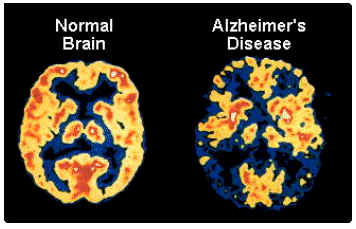Time for
Cognitive Cuppa
Tea
is the beverage with the greatest consumption worldwide. There
are 3 categories of tea - green, black and oolong,
and the consumption of black tea accounts for 80% of
total tea intake. Green tea is a nonoxidized, nonfermented
tea, which contains high levels of polyphenolic
compounds, whereas oolong tea is partially oxidized
and contains a considerable amount of polyphenols.
On the other hand black tea leaves are fermented and
the phenolic compounds are oxidized into different polyphenolic
compounds. In my previous article (HeavenHeaven sent green
tea) I mentioned that tea polyphenols have been found
to be powerful antioxidants that may reduce the formation
of oxidized DNA metabolites, thus contributing to
lower risks of coronary artery disease and cancer. Recent
studies have suggested tea could be useful in the treatment
of Alzheimer’s disease.
Alzheimer’s
disease (AD) ranks fourth in the cause of death among adults.
It is a progressive disease and is the most common form of
dementia with the incidence increasing with age. Five to ten
percent of the population over age 65 have AD and by the age
of 85 about fifty percent are affected.
The
main symptoms of AD are Memory loss, especially of recent
events and newly acquired information.. As the disease progresses,
the person sometimes will not recognize friends or family
members – this is one of the most painful aspects of the disease.
Personality changes can occur, such as unusual agitation,
depression, and social withdrawal. Later, people with AD may
wander, or be unable to find their way home.
New
research has shown that a part of the brain that processes
visual and spatial information may be damaged in people with
AD. This may account for the problems AD patients have with
orienting themselves. Patients may also become inattentive
and unable to care for their day-to-day bodily needs.

The
microscopic changes that occur in the brain of a person with
AD were first noted by German neurologist Alois Alzheimer
in 1906. He performed an autopsy on a woman who had become
more and more confused in the years preceding her death. He
called the changes he observed in her brain ‘plaques’ and
‘tangles’. Tangles and plaques interfere with the functions
of neurons, such as communicating with each other and sending
messages to other parts of the body.
In
addition to the neuronal degeneration in a part of the brain,
Alzheimer's disease is associated with a reduced level of
a chemical called acetylcholine (neurotransmitter) in the
brain. The primary target of licensed drugs for the treatment
of Alzheimer’s disease is the inhibition of the enzyme acetylcholinesterase,
an enzyme which cleaves the neurotransmitter acetylcholine.
Drinking
tea appears to affect the brain in a similar way as drugs
prescribed for Alzheimer's disease, UK researchers have reported.
The team investigated the therapeutic properties of green
and black tea, as well as coffee, in a series of laboratory
experiments and showed that both types of tea inhibited the
activity of enzymes associated with the development of Alzheimer's
disease. Coffee, however, had no significant effect, according
to a report in the recent edition of Phytotherapy Research.
The
teas inhibited the activity of acetylcholinesterase - the
same mechanism of action used by drugs such as Exelon and
Aricept. Green tea went one step further in that it obstructed
the activity of another enzyme (beta-secretase), which plays
a role in the production of protein deposits in the brain
which are associated with Alzheimer's disease.
"Although
there is no cure for Alzheimer's, tea could potentially be
another weapon in the armoury which is used to treat this
disease and slow down its development," the team leader said
in a statement. They concluded that clinical and scientific
investigation of the chemistry and activities of compounds
in green tea, and cognitive effects of tea consumption is
warranted in order to establish the relevance of their novel
findings to the maintenance of cognitive function in old age
and in diseases such as AD.

Dr.
Abdul Molan is a Senior Research Officer at the Institute
of Food, Nutrition and Human Health, Massey University.